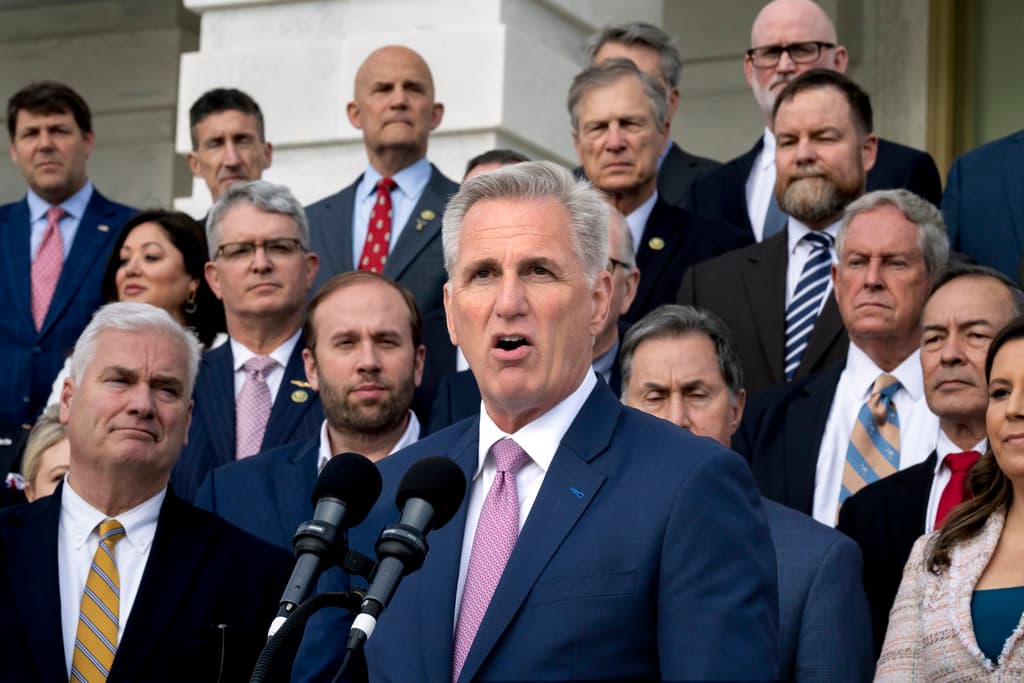Republican Debt Limit Plan on the Rocks Amid Grumbling on Right and Center
One of the biggest sticking points for more moderate Republicans is the issue of food stamps — including the possibility of new work requirements on the government benefit.

As Speaker McCarthy shepherds one of the most significant pieces of legislation of his tenure through the House, he is facing criticism from both his most liberal members and his most conservative, leading to heightened concern that the GOP’s four-seat majority is incapable of banding together.
Please check your email.
A verification code has been sent to
Didn't get a code? Click to resend.
To continue reading, please select:
Enter your email to read for FREE
Get 1 FREE article
Join the Sun for a PENNY A DAY
$0.01/day for 60 days
Cancel anytime
100% ad free experience
Unlimited article and commenting access
Full annual dues ($120) billed after 60 days

